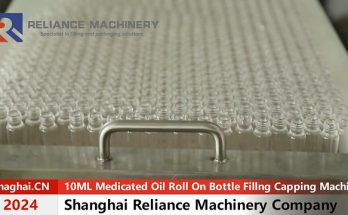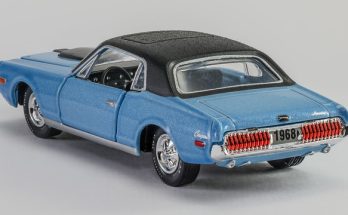
Electric Vehicle Suppliers in the US and Europe
With major automakers investing heavily in EV production, the demand for EV batteries is expected to grow. Localizing the battery supply chain will help reduce reliance on foreign suppliers and mitigate human rights abuses. It will also boost economic development by supporting local infrastructure and fostering spinoff entrepreneurship.
While the shift to EVs is a challenge for many light-vehicle parts makers, leaders of Michigan-based companies see more opportunity than disruption.
LG Energy Solutions
LG is a leading player in the electric vehicle battery market, both in the US and Europe. Their main competitors include Panasonic, which is one of the major partners at Tesla’s Gigafactory in Nevada, and China’s CATL. LG’s EV batteries are made using pouch type cells, a proprietary innovation which uses a stack-and-fold cell design. These cells have a safety reinforced separator, which prevents a cell fire from spreading. They are also highly energy dense, which allows EVs to travel longer distances and provide better driving efficiency.
Despite facing stiff competition, LG has managed to grow its sales and profits significantly in the past year. It has invested heavily in new production capacity to meet demand for its lithium ion battery modules. It also has a global footprint, which is crucial for reducing costs and delivery times.
In the United States, LG has eight battery plants in Michigan and Arizona. Two of these are solely owned by LG, while others are part of a joint venture with automakers. One of these is located in Holland, Michigan, which serves General Motors and its Chevrolet Bolt EV. The company has a long-term supply agreement with Toyota for its new 2025 model EVs. To fulfill this contract, LG Energy Solutions will invest $3 billion at its Holland plant to set up production lines exclusively for Toyota, which is expected to begin in 2025.
SK On
SK On is the world’s leading electric vehicle battery developer, manufacturer, and solutions provider. The company was founded in 2021 when South Korea’s energy conglomerate SK Innovation spun off its battery business unit. It operates EV battery plants in Commerce, Georgia, USA — which serve two global OEMs – and is expanding production capacity in Europe and Asia.
Its co-CEO Jee Dong-seob has a bold goal for his company: to become the world’s largest supplier of electric vehicle batteries by output. He also wants to develop specific batteries for different vehicle types. He believes that EV sales will grow as the market evolves and charging infrastructure becomes more widespread.
The company’s EV battery order backlog is a significant indicator of its growth potential. It has signed agreements on key battery electric vehicle supplier materials with major suppliers, including a deal for lithium supply from Australia’s Lake Resources and an MOU with Swiss firm Glencore on cobalt.
In the US, SK On has a joint venture with Ford, BlueOval SK. The company is building a plant in Stanton, Tennessee, to produce EV batteries for Ford’s new electric pickup truck. The project has received significant state and local incentives, including tax credits, grants, worker training, land, and infrastructure. In fact, according to the left-leaning group Good Jobs First, the plant represents the single largest economic development investment in the state’s history.
BYD
BYD has led the NEV (new energy vehicle) industry since its emergence in 2003, driven by innovative technologies and a well-calibrated global business strategy. It has pioneered battery technology, and the world’s first mass-produced plug-in hybrid NEV – F3DM was launched at the Geneva Motor Show in 2008.
BYD is now a multibillion-dollar company that sells pure EV cars, as well as utility vans, buses, forklifts, and rail transit vehicles, all powered by batteries made at its massive Chinese plants. Its sprawling facilities can produce 30 gigawatt-hours of power annually — more than enough to run every iPhone ever made.
The batteries used in BYD’s cars are made from a different construction than lithium-ion, using a new type of technology called “Blade”. This allows for more freedom of design in the car, while also improving performance. Using these batteries in its vehicles will motorcycle supplier help reduce dependence on imported oil, secure national energy security and contribute to the goal of achieving carbon neutrality by 2060.
Here in Australia, BYD is now selling two models – the T3 all-electric two-seater van and E6 small wagon EV – via local importer Nextport. The company has big plans for Down Under, with six models in the pipeline by 2023, including an EV SUV intended to challenge Tesla’s dominance at the high end of the market and a Dolphin EV city car designed to knock the Toyota HiLux off its perch.
LG Electronics
LG Electronics, the world’s fifth-largest producer of liquid crystal display panels, is preparing to make a significant leap into the auto industry. The company’s Vehicle component Solutions unit is poised to grow into a major supplier for electric vehicles, software, and EV charging systems. The division’s order backlog reached $15.7 billion in 2022, a sign of growing demand for in-vehicle electronics.
The company has signed a supply agreement with Toyota Motor to provide battery cells and modules for BEVs. The deal combines LG Energy Solution’s capabilities to produce top quality battery cells and modules at scale with Toyota’s advanced technologies in battery packs. The agreement will also ensure a safe and secure power delivery system to optimize battery performance.
As part of the agreement, LG will invest in Michigan to set up new production lines to build battery modules exclusively for Toyota. The company also has an established manufacturing network in the United States, with eight facilities currently operating or under construction. In addition, LG has formed a partnership with SK On to boost electrification efforts in the US.
In addition to providing EV batteries, LG has developed key charging technologies. The company’s OBC (On Board Charger) converts external AC power received through standard chargers into stable DC power for EVs. The OBC uses aluminum to reduce its weight, which increases driving range and performance. It is already equipped on GM’s mass-produced EVs.

